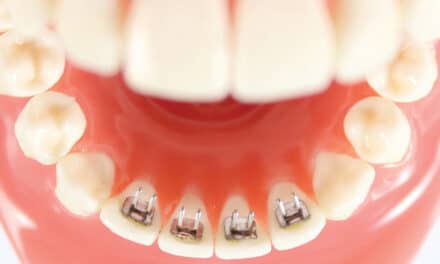1/30/07
February is National Children’s Dental Health Month. The ADA offers advice for parents and caregivers to help children maintain healthy teeth and gums.
"Preventive dental care has greatly improved the oral health of American children," says Kimberly Harms, DDS, ADA consumer advisor and general dentist from Farmington, Minn. "It is now possible for many children to reach adulthood without ever experiencing tooth decay and that is why good oral health practices should begin in infancy and continue throughout adult life."
The ADA recommends regular dental check-ups, including a visit to the dentist within 6 months of the eruption of the first tooth, and no later than the child’s first birthday. Preventive care, such as cleanings and fluoride treatments, provide "smile insurance." Routine dental exams uncover problems that can be treated in the early stages, when damage is minimal and restorations may be small. When necessary, dental radiographs may be taken to see how the teeth are developing and to spot hidden decay.
Early childhood caries or baby bottle tooth decay can destroy a child’s teeth. It occurs when a child is frequently exposed to sugary liquids such as milk, including breast milk, fruit juice, and other sweet liquids. The ADA recommends the following steps to prevent your child from getting early childhood caries:
• Begin clearing a baby’s mouth during the first few days after birth. After every feeding, wipe the baby’s gums with a damp washcloth or gauze pad to remove plaque;
• Never allow a child to nurse or breast feed for prolonged periods and don’t give him or her a bottle with milk, formula, sugar water, or fruit juice during naps or at night in bed;
• Encourage children to drink from a cup by their first birthday;
• Discourage frequent use of a training cup; and
• Help your child develop good eating habits early and choose sensible, nutritious snacks.
[Newswise, January 29, 2007]









